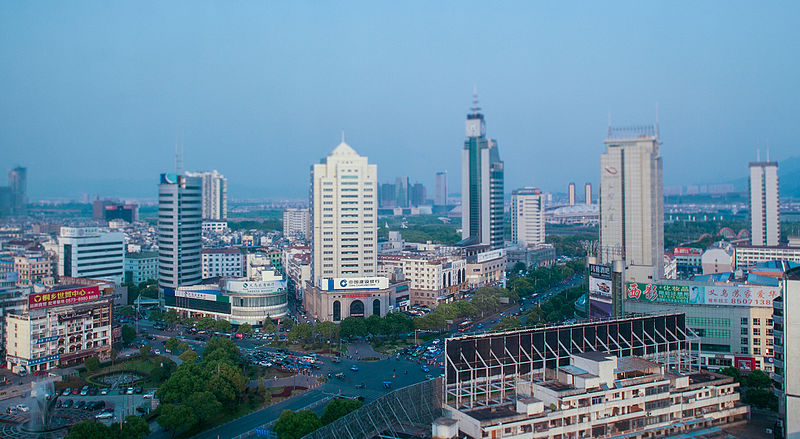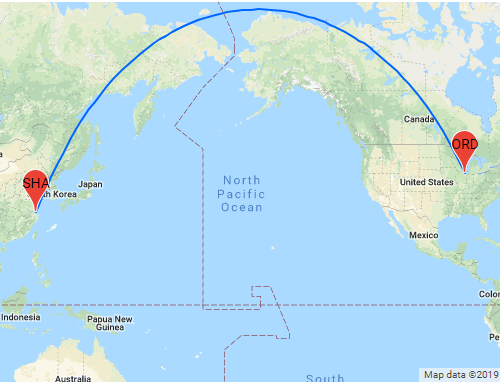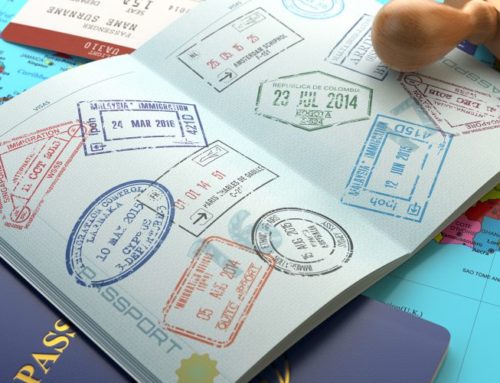In a world where nothing seems impossible with trading, a place called Yiwu China found in the People’s Republic of China represents a major trade centre. The Yiwu market is the most popular site in Yiwu.
Yiwu China is a county in Jinhua under Central Zhejiang province of East China. The city is known for being the biggest wholesale market. This fact gives the city the title, “China Commodity City” and the popular commodity market is known as the Yiwu Market.
Yiwu China is an urban centre of trade. It is also a popular tourist location and it is very popular for its numerous small scale industrial establishments scattered across the city.
LANGUAGES SPOKEN IN YIWU CHINA
The art of communication is generally very important when a traveller goes to a new place and communication is also a vital part of interaction in Yiwu China.
Chinese languages are represented in two forms: Traditional Chinese characters, and Pinyin. Pinyin is the Romanised version of Chinese, and it is popular for translating Chinese to foreigners. It indicates the pronunciation guide of Chinese languages which are written in Chinese character while traditional Chinese characters are the most popular in China. It is found in most Chinese texts such as newspapers, journals, articles, textbooks e.t.c.
A good number of languages are spoken in China. It will be beneficial if you can learn some of the top languages spoken in Yiwu as this will enable you to communicate with traders and locals in Yiwu. These languages are also spoken throughout the country. Although, some of these languages are popular in some provinces than in others.
Common languages spoken in Yiwu are;
A) Chinese Mandarin:
Mandarin is the most spoken, oldest and common known language spoken by people in China. It is also known by other names, such as;
- Beijinghua
- Northern Chinese
- Zhongguohua.
- Beifang.
- Fangyan.
- Chinese Mandarin is spoken by a large proportion of the Chinese population. About an estimated two-thirds of the population speaks Mandarin.
Subdivisions/Varieties of Mandarin
- Northern Mandarin: Northern Mandarin is the most common form of Mandarin spoken in China. It is mostly spoken in North, North-east China and areas around it. Places, where Northern Mandarin is mostly spoken, are Manchuria, Beijing, Dalian and Harbin.
- North West Mandarin: This language is commonly spoken in these Chinese cities: Xinjiang, Gansu, Ningxia, Shaanxi, Qinghai, Naomi.
- South West Mandarin: South West Mandarin is a form of Mandarin commonly spoken in Chinese cities: Guizhou, Chongyang, Sichuan, Yunnan.
- Southern Mandarin: This is commonly spoken in Chinese cities: Hainan, Guangdong, Nanjing.
B) Wu:
This is another common language spoken in China. Wu is known by the following names: ChaWuyueyu, Wuyueyu, Goetia. Wu is commonly spoken in the following Chinese provinces, and cities: Shanghai province, Fujian, Zhejiang, Jiangsu, Anhui, Jiangxi.
C) Yue (Cantonese):
This sounds a lot like Mandarin to most non-native Mandarin speakers. Yue might sound like mumbling of words when non-native speakers hear it for the first time. However, it can be categorised in the group of sub-dialects of Cantonese.
Yue has other names such as Cantonese, Yuet Yue, Yueyu. Most speakers of Yue are found in Guangdong (This includes the famous city of Guangzhou), Hunan, Hainan Guangxi Zhuang
D) Xiang
This language is very popular in South China. Most Yue speakers can also be found in South China. Xiang can be categorised into two variants: New Xiang and Old Xiang
The first variant: New Xiang is the more common form of Xiang. New Xiang is spoken in cities in North-East China cities such as Changsha. The second variant: Old Xiang is the less common form of Xiang. Old Xiang is spoken in these Chinese cities and provinces: Shuangfena and Hunan provinces.
E) Min
- This language is commonly spoken in Fujian province in China. Min speakers can be found in these areas: Taiwan, Hainan, Zhejiang and Guangdong.
- There are five common sub-dialects of the Min language. They are:
- Chaoshan.
- Longyan.
- Tsuan-Tsiang.
- Datian.
- Zhenan.
F) Gan
Min is commonly spoken in these Chinese cities and provinces: Hubei, Hunan, Jiangxi, Fujian. Among its speakers, Gan is also known as Jiangxinese, Xi, Kan.Like many Chinese languages which are usually similar to each other, Gan is similar to other Chinese languages especially Hakka language.
G) Hakka
This is a common language spoken in isolated areas of China. People who speak Hakka can be found in the Guangdong and Sichuan provinces in China. Hakka is also common among non-Chinese people with Chinese origins.
Another group of Hakka speakers can be found among the immigrant population of countries in South East Asia such as Indonesia, Malaysia, and Thailand.
HISTORY OF YIWU
Yiwu translates from its Chinese origin as “Righteous Crows”. From historical sources, the origin of Yiwu, China can be traced to approximately 222 BCE. Yiwu China was formerly called Wushang County before it gained its current name as Yiwu China in 624 BCE.
The people of Yiwu China are popular for their agriculture. These people are farmers of many cash crops, especially sugar. They were popular for carrying their harvests to far settlements to trade in exchange for the feathers of chickens.
These feathers were mostly used to make dusters, and were in high demand at that period. At that time, they were majorly sold to make substantial profits.
AN INSIGHT INTO YIWU MARKET
Large scale trading in form of wholesale goods started in Yiwu China around 1700. Sadly, this market was suppressed following the establishment of the People’s Republic of China in 1949. The market was considered to be a capitalist establishment by the communist and against the interests of the communist party at that time.
This breakdown by the government forced the traders of Yiwu to conduct business secretly. Yiwu market was a free market back then and remains the same now. The prices of goods and services were naturally decided by the forces of demand and supply. The market was also heavily influenced by traders and their customers.
Yiwu was the recipient of major reform in 1978. Since then, the market has grown in size. In a 1995 rating, Yiwu occupied the position of 47th out of 100 amongst the most powerful Chinese cities. In 2001, the market rose to 19th in rankings. Since the government reforms, Yiwu market has grown to be the largest commodity market in China and the world at large. The market now attracts so many visitors from all over the world. With over 17 main industries and 420 different consumer products manufactured in Yiwu, it is home for the various commodity market.
BUSINESS TRADE OPPORTUNITIES IN YIWU
When doing business in Yiwu, the assistance of an agent when conducting trade activities is needed. These agents help perform and ease trading activities, some essential functions of market agents are:
- They help plan market visits: Trade agents are known for being the middlemen between the customers and traders in the Yiwu market. They work by creating an avenue for both parties to meet and have a business discussion.
- They follow you to the market: Trade agents help to accompany interested customers and businessmen to the market. They assist in guiding them through the terrain of the market, to increase the likelihood of favourable market exploration.
- Assist you to collect orders: if a buyer wants to get goods from the market, and does not know how to do so, the trade agent can assist in getting the product from the seller.
- Assist in goods inspection: After a customer has acquired a product from Yiwu, the trade agent can insist on checking the product for any defect. The trade agent aid in returning the product to the seller if faulty, trade agents also help to confirm the authenticity of products bought from Yiwu.
- Assist on Shipping: When a customer wants to send goods outside Yiwu to another country, trade agents can assist in the shipment of such goods.
COMMODITIES OR PRODUCTS SOLD IN YIWU
There are various types of products sold in Yiwu, they include:
- Fashion Accessories which include make up items, clothing, jewellery, hair products, bags, shoes, etc.
- Children Items which include toys, clothing, baby care products, stationaries etc.
- Event items which include canopy, balloons, chairs, tables, design ribbons, microphones, etc.
- Home items which include curtains, pillows, mattress, mops, buckets, etc.
- Packing items which include wrapping paper, tape, glue, boxes, baskets etc.
- Machine tools which include hammers, pliers, ladders, nail gun, shovels, rakes etc.
WHAT A BUSINESSMAN SHOULD KNOW ABOUT YIWU MARKET
Yiwu China is the site of the wholesale commodity market in the world. Traders and businessmen come to Yiwu from all over the world to buy small commodities in wholesales. Yiwu market contains about 75,000 market stalls, where suppliers display goods from factories for local and international traders.
Doing business in Yiwu is an exciting and profitable experience. It’s the centre for every retail and wholesale trader in China. It has so many stalls which products from more than 100,000 suppliers from China, and outside China.
Before coming to Yiwu to do business, there are certain things to note. Knowing these things, and adapting to them can make doing business in Yiwu a seamless experience.
The most important is the use of good business/trade agents when doing business in Yiwu. Just like every other business centre in the world, it can be difficult to do business in Yiwu. The most important issues when doing business in Yiwu include the size of the market and language.
- Size: Yiwu market is very large. This is very important to note before coming to Yiwu China to trade. The size of the market can affect business both negatively, and positively. The market has grown over the past few decades with the addition of new, and large market stalls to the size it is today. Almost every kind of product can be found in Yiwu. The size of the market could make it difficult for traders to navigate the market. New traders can get lost in the market when they visit for the first time. This can make it difficult to do business in Yiwu China. One way to make navigation easier is by employing locals to help you find goods in the market. Most business agents employ locals to help navigate Yiwu.
- Language: The most popular language spoken in Yiwu China isn’t English, but Chinese Mandarin. Most locals in Yiwu do not know how to communicate in English, and this can be a major limitation to doing business in Yiwu. Two ways to overcome this communication barrier is Learning the local language or employing a translator. The second option of employing a translator is the easiest and most common solution to avoid the language barrier on Yiwu.
VISA TO YIWU
Like every other city in the world, coming to Yiwu as a foreigner requires a visa to China. A visa to China grants travellers the opportunity to get into China for different purposes; tourism, business, study, work etc.
Most travellers come to Yiwu for business. Thus, the most common visa to Yiwu is a business visa. The business visa is granted to foreigners from most countries who are coming to Yiwu China for business such as attending the Yiwu Fair.
The China business visa is also known as the M visa, it is issued to travellers who are coming to China for business purposes. A Chinese M visa is valid for 90 days, and an extension can be given based on business, and personal reasons. However, not every foreigner will need a Visa to get into the people’s republic of China. You should check if you are citizens of any visa-free entrance countries into China.
The requirements for obtaining a China M visa for travellers are:
- A valid passport: A valid passport is issued by the Foreign Ministry of the traveller’s home country. A valid passport which has six months validity is required by travellers who are applying for a Yiwu Visa.
- An application form: An application form, typed not handwritten is required when applying for a Yiwu China visa. The application form is submitted to the Chinese embassy of your home country.
- An invitation letter: An invitation letter is required when applying for a China M visa. An invitation is issued by a resident of China. An invitation letter can be in various forms such as
- An invitation letter issued from a trade fair.
- An invitation letter from a business partner in China.
- An invitation letter from a relevant Chinese authority. This invitation letter can be issued by the Chinese foreign affairs office.
An invitation letter is issued free of charge. these documents are collated and submitted to the Chinese Embassy in your home country. Submission of these relevant documents does not guarantee a visa immediately until they have been reviewed and approved by the Chinese embassy.
It is also important to note that due to the recent surge in covid-19 cases around the world, China has limited entry into the country. There’s a temporary ban on travellers who are coming to China from countries with a high covid-19 burden such as France, the United Kingdom, Italy, India, Russia etc. This ban also includes those with a valid visa and those that do not require a visa to the country.
There a few exemptions to this ban. Only those with specified valid residence permits are exempted from this ban.
VISA EXPRESS SERVICES
China is home to so many wonderful cities, the country is open to tourism, business, work and educational purposes to foreigners from around the world. The Chinese city of Yiwu has the largest wholesale/retail, commodity market in the world. The market is the choice destination for most businessmen involved in the wholesale/retail chain.
Travelling to Yiwu China requires a valid visa which can only be obtained from the Chinese embassy. Applying for, and obtaining a visa to China can be a difficult challenge without the use of a visa ṣervice. Visa express service provides an interface between the traveller and the relevant travel authorities.
A visa service like visa express service is dedicated to assisting prospective travellers who are travelling to Yiwu China for different purposes. We assist in obtaining visas, business invitation letters and also handle every other process of your visa application for travellers.
Our visa service is dedicated to assisting foreigners travelling to Yiwu China for business. We are also committed to ensuring that all travellers to Yiwu, get the best travel services no matter the intent of travelling.
Visa Express is committed to ensuring that doing business in Yiwu is hassle-free. We are dedicated to welcoming new travellers to Yiwu China for the best travel experience. To use Visa express services for your travel to Yiwu, apply here. For more information on our visa services contact us or send us an email on support@visaexpress.com.





